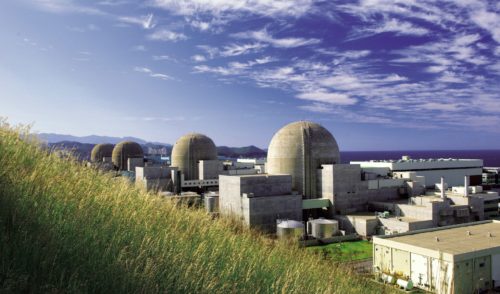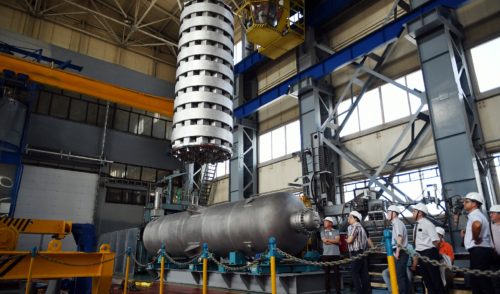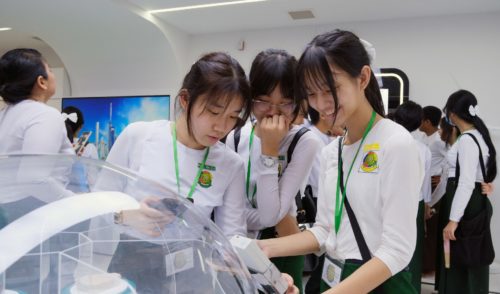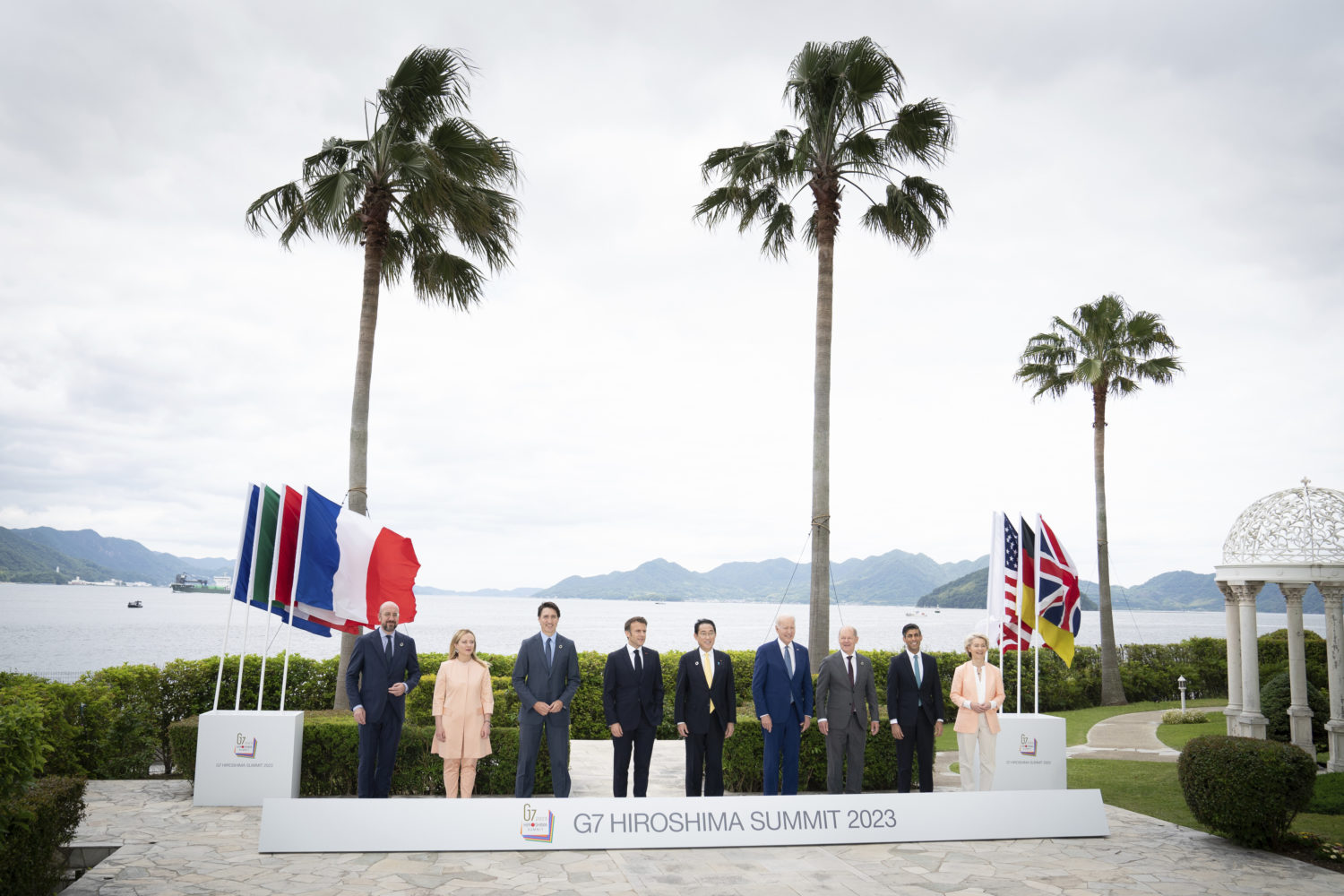
The Five Against Rosatom
back to contentsFive nations agreed to counter Russia in the nuclear sector at the G7 Nuclear Energy Forum held in Sapporo, Japan. The alliance does not appear to be strong since the nuclear fuel supply chain is distributed between several countries. Their efforts will backfire, harming themselves and their willing and coerced allies as restrictions on competition will drive prices up.
The trend of countering Russia in the nuclear market continues. “Canada, France, Japan, the United Kingdom, and the United States have identified potential areas of collaboration on nuclear fuels to support the stable supply of fuels for the operating reactor fleets of today, enable the development and deployment of fuels for the advanced reactors of tomorrow, and achieve reduced dependence on Russian supply chains,” says a joint statement by the member countries of the new agreement.
Disrupted supply
Why did these countries join the agreement? “This multilateral effort would aim to recognize and leverage the unique resources and capabilities possessed by each country’s civil nuclear sectors to establish a global commercial nuclear fuel market,” the statement says.
What does it really mean? It means that, unlike Rosatom, neither country has control over all the links in the nuclear fuel production chain. France, the UK and Japan do not produce uranium at all, while the output of uranium in the US is neglectable, at least for now. Neither Japan nor the US has conversion operations yet. Canada has no enrichment capacity. Fuel assemblies for Canada’s CANDU and UK’s gas-cooled reactors are not suitable for pressurized water reactors because the former use natural, not enriched uranium and have a different geometry of fuel assemblies. And, strictly speaking, the USA has no fabrication capacity because fuel assemblies are manufactured in Sweden.
Thus, the agreement looks like an attempt at creating Frankenstein’s monster in the nuclear fuel segment. In the future, this situation is likely to persist, as building an entire supply chain within a single country is either impossible (due to the unlikelihood of France or the UK producing uranium) or extremely expensive (such as constructing new enrichment capacity in the USA).
But is the comparison with Frankenstein’s monster appropriate? After all, a supply chain distributed across multiple countries is common in international manufacturing and trade.
History shows that only individual parts of this ‘supply chain monster’ have been functional so far. For example, yellowcake deliveries from Canada to the US, US-Japanese cooperation in the PWR fuel production (Mitsubishi Metal Corp. has been manufacturing zircaloy tubes with Westinghouse Electric technology since 1958, etc.), a contract signed last summer between France and Japan to reprocess spent nuclear fuel from Japanese reactors, and so on. However, even if we assume that a single supply chain comprising each of the parties to the agreement is built, it is safe to say that such a chain will be fragile since its every ‘link’ will pursue not only the common goal but also, as much as possible, the best deal for itself.
Another reason why the chain will be fragile is due to the unreliable or unpredictable behavior of the links. For example, the US did not renew uranium purchase contracts with Canada in 1959. Similarly, the UK refused to buy uranium, as it believed it would require less of it. The Canadian government was forced to purchase uranium for its reserves at an annual average of 500 tons until 1974 compared to 12,000 tons per year before the curtailment of supplies. A more recent example is Westinghouse: the company went bankrupt due to poor management, nearly dragging down its majority shareholder, Toshiba of Japan, which then had to restructure its business and sell some of its assets. The most recent example of this detrimental attitude towards partners is Australia’s cancellation of a contract with France for the construction of diesel-electric submarines. Subsequently, Australia entered into a new agreement with the United States to build nuclear submarines.
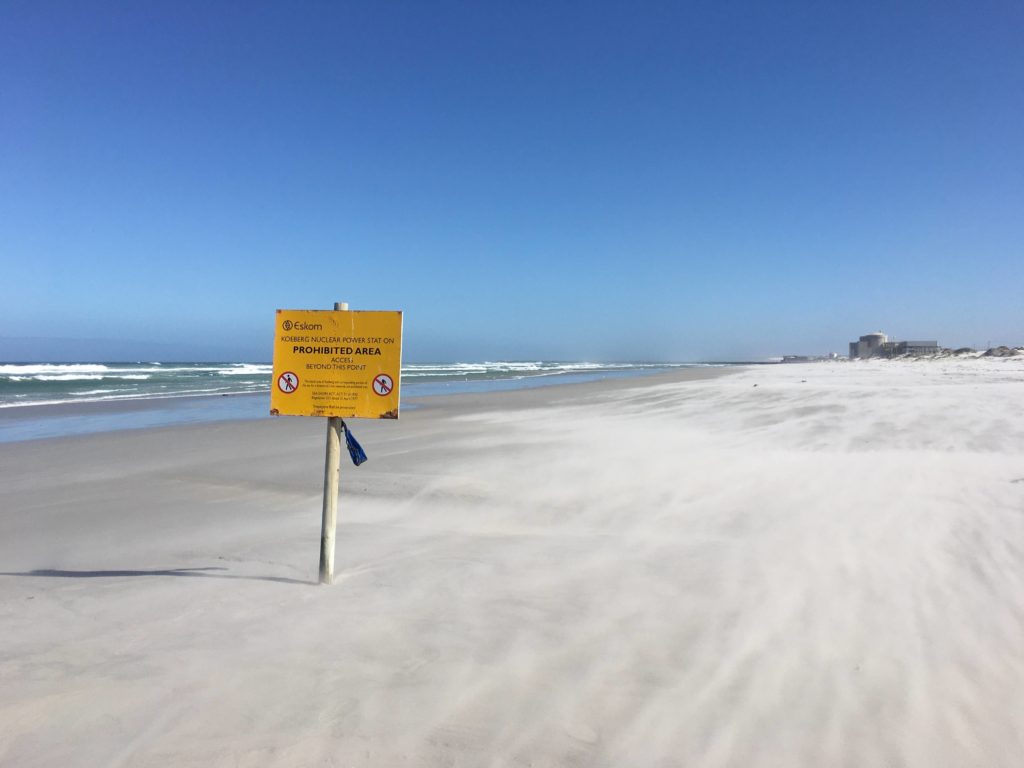
South Africa’s Koeberg nuclear power station suffered a mishap. Its two reactors were built, and supplied with fuel, by the French Framatome. In the 1990s, Westinghouse decided to bid for the supply of fuel to Koeberg. The first fuel delivery from the American manufacturer arrived at the station in 2000. The fuel supply license expired in 2020, and so did the intergovernmental agreement between South Africa and the United States last December. Attempts to extend it failed. The license was renewed on a provisional basis, but the current situation cannot be called stable. Koeberg can only hope that the fuel deliveries will not be suspended because otherwise the nuclear station will be shut down and the energy crisis in the country will intensify causing rolling blackouts. This poses a significant problem not only for the local residents but also for the Western owners of local mining companies. The energy crisis contributed to the growing shortage of platinum on the market this year as South Africa is one of its largest suppliers.
Rising prices
The agreement, of course, benefits nuclear fuel companies in the member countries. They will receive political support and, potentially, business development subsidies and new contracts. Such contracts, however, will be disadvantageous to the buyers of nuclear fuel, including those from the same member countries and their political allies.
We wrote in this year’s first issue that the price of Russian uranium in the US market was half that of the US producers and one and a half times lower than the market average. Refusing to buy Russian uranium increases nuclear fuel prices, making nuclear power generation in the United States less competitive. Naturally, this is well understood in the United States, which is why pragmatic cooperation between Rosatom and US utilities continues despite concerns in the media.
Higher prices quoted by Western suppliers, as compared to those of Russian uranium are also a concern in Bulgaria. “The suspension of the Belene NPP project and the impossibility of delivering it with potential Russian investors will freeze almost EUR 4 billion of Bulgarian taxpayers’ money, won’t it? How much would it have cost to build Belene with the participation of both European and Russian investors? Around EUR 10 billion. And how much would the possible cooperation with Westinghouse cost, which the previous parliament voted for? About EUR 30 billion. The difference is obvious … I ask for the umpteenth time whose interests are we protecting — Bulgaria’s or someone else’s?” says Borislav Gutsanov, Secretary of the Executive Bureau of the Bulgarian Socialist Party.
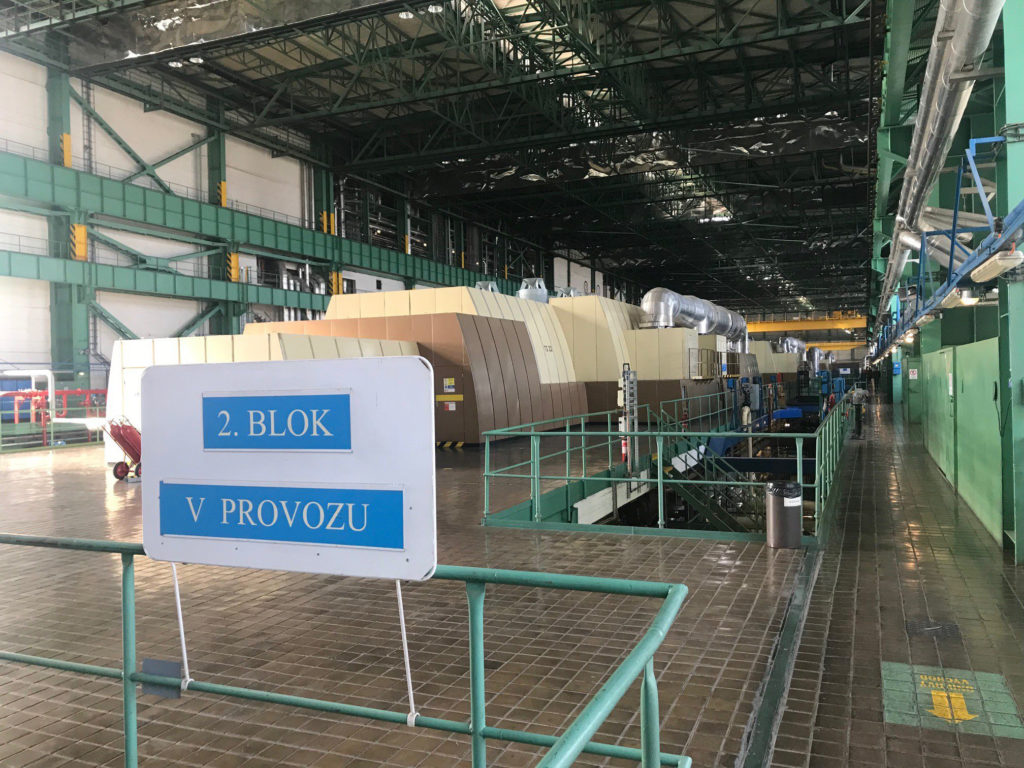
Price growth is therefore driven by a combination of market and political factors. Restricting a key supplier from the market creates a shortage in relevant market segments; as a result, buyers will purchase more, and the remaining suppliers will raise prices as competition decreases. What can hold them back? The entire world saw the effects of such restrictions in the hydrocarbons market in 2022 after the supplies from Russia were sanctioned. However, the nuclear fuel market also experienced a frenzy and an increase in demand. Urenco CEO Boris Schucht stated that orders were up 24 % in 2022 and more than 10 % in the first quarter of 2023.
Specifics of market behavior
How do member countries plan to isolate Russia? “The supply of civil nuclear technology, equipment, or materials would be subject to applicable domestic laws, regulations, and international agreements,” the authors of the agreement suggest. The agreement also provides for deliveries to ‘third countries’. It is clear, even without loud yet vague statements, that these primarily refer to countries of Eastern Europe. These include Ukraine (which signed a ten-year contract with Cameco in February for the supply of unenriched hexafluoride), Bulgaria (it signed contracts with Cameco, Urenco, and Westinghouse in April for the supply of nuclear fuel to the Kozloduy NPP), and the Czech Republic (Westinghouse and ČEZ signed a contract in March).
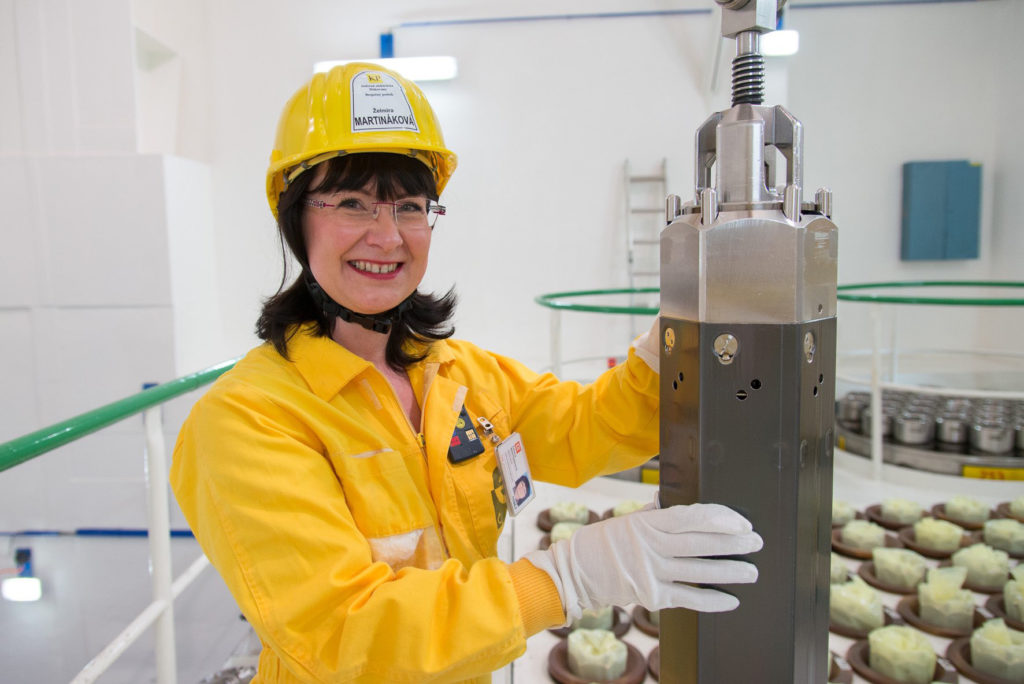
It should be made clear, though, that there is no alternative to Rosatom as a supplier of fuel for VVER‑440 reactors, despite Westinghouse’s statement that the fuel deliveries would begin next year. However, even the US company has admitted it would take seven years to substitute the Russian fuel. Fuel reloading may, therefore, begin in 2030 at the earliest. For the record: it took Westinghouse 14 years (counting from the moment when the decision was made on the alternative fuel until the first fuel batch was reloaded) or 10 years (counting from the start of engineering studies) to launch the fabrication of VVER‑1000 fuel assemblies in Ukraine. Another five years were spent to remedy the flaws that affected the safety of fuel assemblies.
It should also be stressed that VVER‑440 reactors were built in Europe in the 1970s and the 1980s. These are very good reactors of Russian design; their service life has been extended, but it is not infinite. They will be decommissioned in 2030–2045. This means the alternative fuel will be supplied for a maximum of 5 to 15 years. During this time the supplier will have to recover its development costs and earn the planned profit. We can only sympathize with the consumers who have refused to buy the more affordable, reliable, and easy-to-use Russian fuel for political reasons.
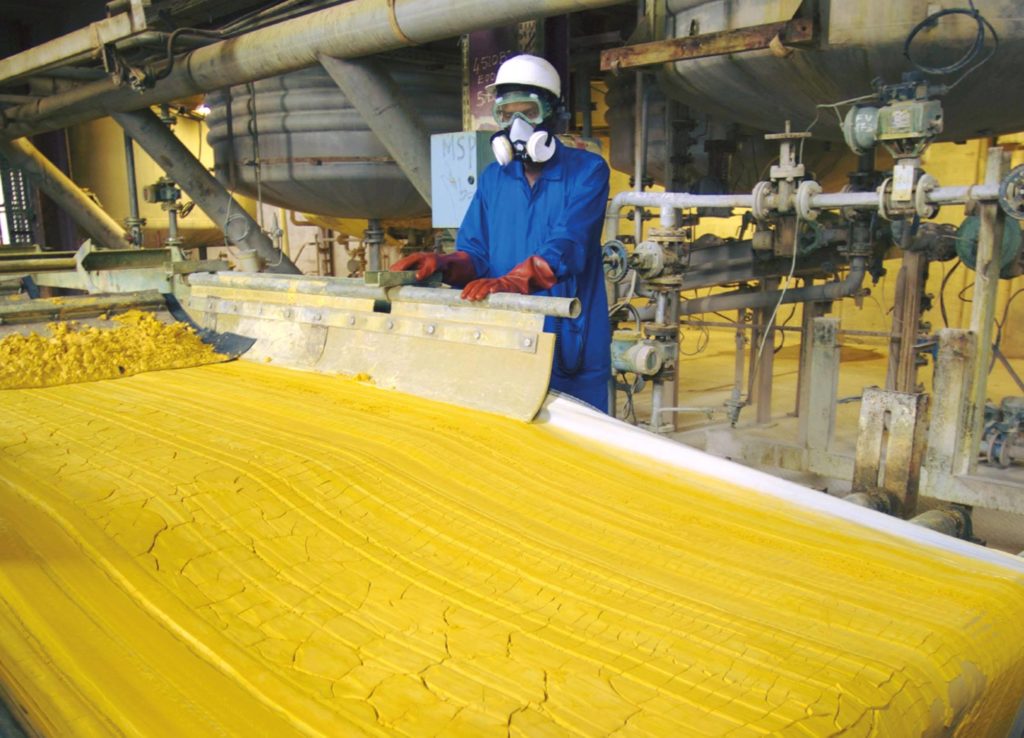
The biggest concern is, of course, how safe the alternative fuel will be, especially in combination with the Russian fuel assemblies (the fuel in the core is replaced in batches, not all at once). The fuel manufacturers and plant operators will have to recalculate the reactor core parameters for each reactor. This is not an easy process: only a few people can do that, and the risks are significant. It is obvious that the blame will lie with the alternative fuel manufacturers should an accident occur. For this reason, politics and market competition should by no means take precedence over nuclear safety.
Rosatom is aware of the risks the alliance poses and will protect its interests. The Russian nuclear corporation is growing, building relationships, forming partnerships, deepening and expanding cooperation with various countries by offering them the best solutions that have already been tested, and developing new solutions for the nuclear power, non-power, and non-nuclear segments. Rosatom builds clean and reliable nuclear plants powering their host economies, creates and equips nuclear science centers, fabricates medical isotopes and radiopharmaceuticals, and takes care of the environment by decontaminating legacy sites and facilities. This is what should normally be done for the good of this planet and the people living on it. And there are many who want to join us in this work.


